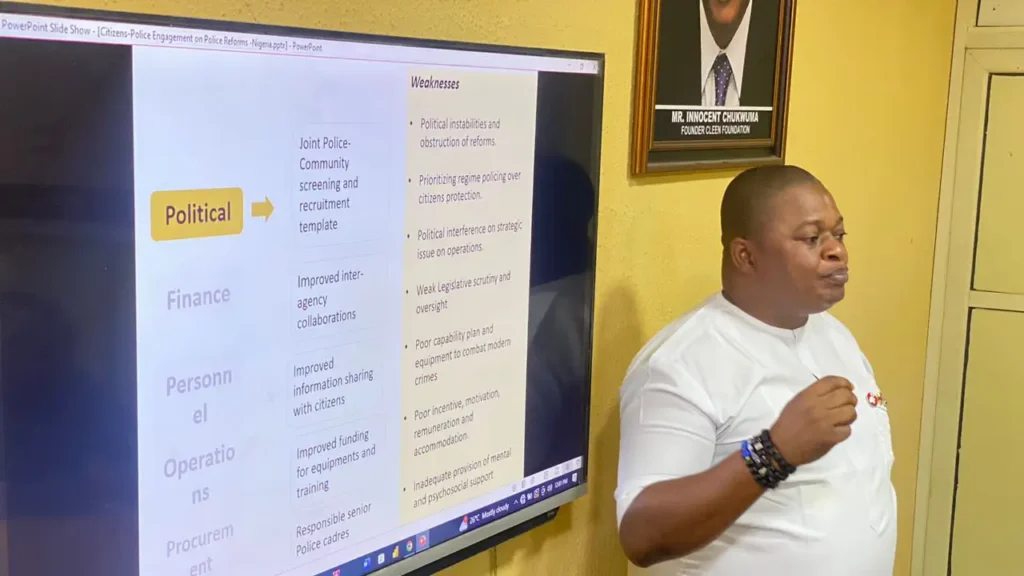The CLEEN Foundation, with support from MacArthur Foundation, has called for greater coordination and collaboration among stakeholders involved in the criminal justice system’s value chain to ensure full compliance with the Administration of Criminal Justice Act, ACJA 2015 in states across Nigeria.
The Foundation expressed dissatisfaction with the level of compliance observed in selected states and identified gaps in the enforcement of laws, sentencing practices, and custodial applications.
CLEEN recommendations
In response, the Foundation advocates for transparency, accountability, and the rule of law to enhance the effectiveness of innovations within the legal framework.
CLEEN Foundation highlighted key interventions that state actors must implement, particularly among various law enforcement agencies, court personnel, and custodial officers.
Speaking on Thursday, Salaudeen Hashim, the Program Director at CLEEN, addressed these issues in a Policy Brief Presentation on Gender Accountability and Transparency in the Implementation of the ACJA 2015, held at the CLEEN Foundation Hall, Innocent Chukwuma House, Ikeja, Lagos.
He emphasised the need for a structured approach to implementing non-custodial sentencing, which is currently limited to convicts assigned to sweep and clean court premises.
Hashim stressed the importance of integrating non-custodial sentencing with extensive social services in communities.
He also stated that the court systems in the focal states should develop implementation protocols for the novel policies introduced by the ACJA. There is a critical need for a system of institutional engagement that facilitates collaboration and feedback across all service points.
He further noted that police performance under the ACJA is contingent on the presence of certain support systems, such as modern interview rooms, digital evidence gathering and preservation tools, and gender complaint structures.
Until there is adequate and continuous investment in police service points across the focal states, the goals of the ACJA will remain aspirational.
Additionally, the study revealed a disconnect between correctional services and the court systems in the focal states, leading to missed court dates and the failure of correctional services to produce defendants in court as required.
The overwhelming issue of infrastructural gaps, combined with the misalignment of operations between correctional services and the courts, underscores the necessity for a system of institutional engagement that promotes collaboration and feedback across all service points.
Blessing Abiri, Head of the CLEEN Foundation in Lagos, remarked that respect for the rule of law and citizens’ rights must remain central to the administration of justice.
She reaffirmed the Foundation’s commitment to driving reforms and fostering a justice system that serves all Nigerians.
Abiri advocated for a holistic approach that prioritises transparency, accountability, and inclusivity.
She added that a comprehensive analysis is needed to evaluate the extent to which various stakeholders—law enforcement agencies, the judiciary, legal practitioners, and civil society organisations—are adhering to the provisions of the ACJA.



